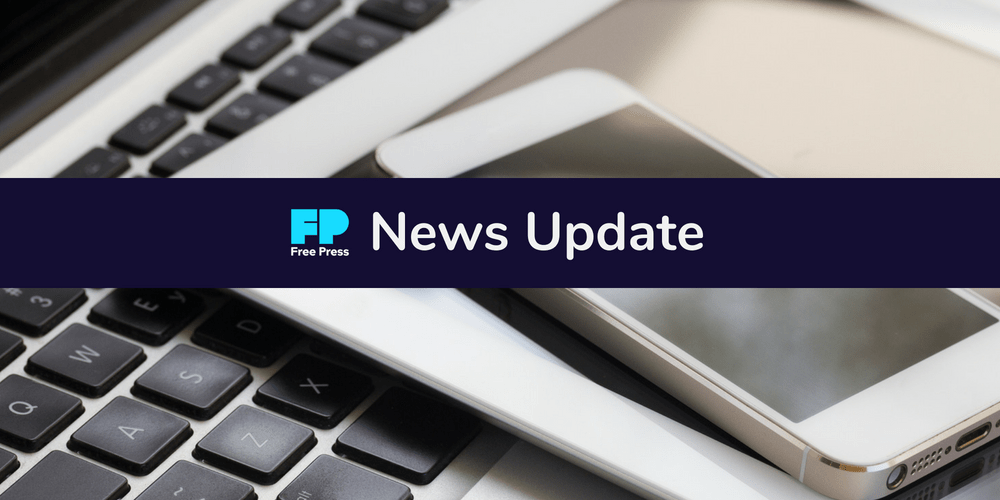Senate Bipartisan Infrastructure Bill Makes Historic Investment in Broadband Affordability

WASHINGTON — On Tuesday, the U.S. Senate passed the Infrastructure Investment and Jobs Act (or “IIJA”), a $1.2-trillion deal negotiated by senators on both sides of the aisle and the Biden White House.
The bill touches on a wide range of spending projects and infrastructure-policy priorities, including more than $40 billion for broadband deployment and $14.2 billion for broadband-affordability measures. That affordability money would go to a renamed and slightly revamped Federal Communications Commission program, launched this spring as the Emergency Broadband Benefit program, but labeled and funded in the new legislation as a more permanent Affordable Connectivity Program.
It would provide households living near the poverty line or enrolled in other federal-aid programs with up to $30 per month for the internet package of their choosing from participating providers. That maximum allowance would increase to $75 per month for people living on Tribal Lands and potentially in other remote and rural areas.
The bill also sets aside billions more for digital-inclusion efforts, Tribal connectivity and other network investments. And it calls on the FCC and other federal agencies to increase broadband-pricing transparency and prevent discrimination in deployment based on the race, ethnicity or income of residents in an internet service provider’s territory.
The package is expected to move in the House when that chamber returns to consider both the IIJA and an expected budget-reconciliation bill with additional spending on vital social programs.
Free Press Action Vice President of Policy and General Counsel Matt Wood made the following statement:
“For far too long, the conversation in Washington about the digital divide focused on broadband deployment alone. Today’s vote shows that era is over. Never before have we seen such a meaningful congressional investment in closing the digital divide for people who already have access to high-speed internet networks but cannot afford to connect.
“Millions of people who have access to broadband in their neighborhoods simply can’t pay the high price to get connected without the kind of robust financial support this bill offers. This pernicious internet-adoption gap is built on income inequality and systemic racial discrimination that especially impacts Black, Latinx and Indigenous communities. Today’s bill, once it’s passed by the House and signed by President Biden, will be a huge leap toward closing that divide.
“Neither the process for getting to this point nor the final result was perfect. The renamed Affordable Connectivity Program reduces the maximum monthly benefit available to most eligible participants by $20 per month — down to $30 from the $50 presently available under the Emergency Broadband Benefit that Congress authorized in December and the FCC launched this spring.
“A motivation to make the new appropriation last longer by cutting payouts might be understandable. But other motives for reducing the payment — such as the belief that poor people ought to pay something out of pocket, or that ISPs make too much money — misunderstand the nature of both anti-poverty programs and today’s high-speed internet marketplace. We can’t change that marketplace with the tool of these new spending programs alone. Giving people the financial support they need to have more choices today — while working to rein in high prices with competition policy and other regulatory interventions — is a far better approach.
“This bipartisan bill’s pricing transparency and nondiscrimination provisions also represent steps forward, but they aren’t as strong or comprehensive as they could have been. They also aren’t as robust as what the FCC can and must do when it restores its authority under Title II of the Communications Act once we finally have a full complement at the Commission again. But the bill does include new language prohibiting discriminatory credit checks and other unjust measures that could prevent people from taking full advantage of the new program.
“In the end, the broadband-affordability spending in the infrastructure bill is incredibly significant. It’s not just the sheer size of this robust $14-billion investment that makes it worth celebrating. The Senate negotiators and the White House kept the sound structure of the existing emergency-benefit program that is already up and running successfully at the FCC today, and they added important new consumer protections and flexibility to that structure. All of this will enable people in need to connect more affordably to high-speed internet over the long haul.”